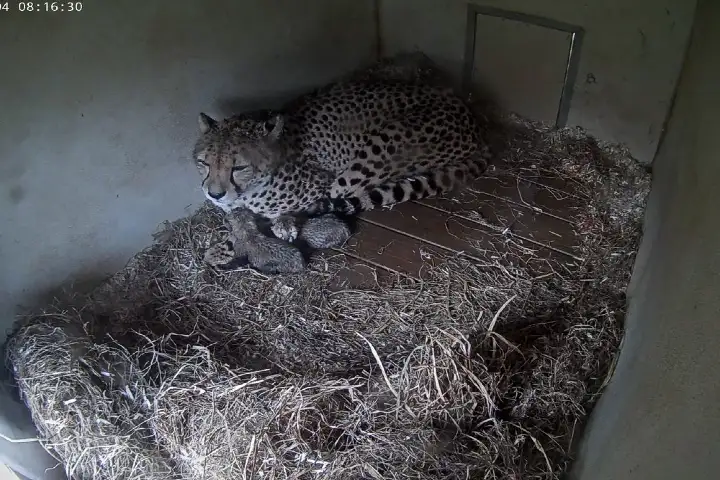Given the precarious situation of cheetahs in the world, any addition in their number anywhere in the world is welcome. The news that the four-year-old female cheetah Amani gave birth to two cubs this month in the US precisely gave wildlife enthusiasts this feeling.
As per a report in smithsonianmag.com the cubs were born in Smithsonian’s National Zoo and Conservation Biology Institute in Virginia. While their images are not available, they are visible on the Cheetah Cub Cam.
The statement by the Zoo said that the two cubs looked active and strong and were nursing well and vocalising. No one will visit them till such time the mother is secure in leaving them alone. They are being watched constantly by the staff.
The cheetahs are vulnerable to extinction. In Africa, they have disappeared from 90 per cent of their original range while only 50 of these remain in Asia. Today just 7,000 exist in the wild while in captive breeding in North America there were 400 in 2019.
Speaking to WTOP radio, Pamela Baker-Masson, Director of Communications in NZCBI said: “There just aren’t very many cheetahs in the wild and not so many in human care. They are a challenge; there’s no other way to put it—a challenge for breeding.”
What makes these felines endangered today to perils like change in climate, hunting and destruction of habitat is the fact that there is a lack of variety in their gene pool. Reduction in their numbers twice in the past resulted in inbreeding which makes it tough for them to adjust to environmental changes.
The two cubs provide a glimmer of hope as they are the first offspring of Amani and Asante, the 7-year-old father. Their genes are different from other living ones making them an important and valuable addition to the gene pool.
Stressing the importance of this, Baker-Masson said: “We want a population of cheetahs with the most genetic diversity possible. Genetic diversity means a healthy, thriving population, and it enhances our ability to do more.”
Interestingly, scientists took into account the genetic makeup, temperament and health of Amani and Asante before pairing them.
The NZCBI is part of the group of 10 breeding centres in the US, called Cheetah Breeding Center Coalition. The latest litter is the 17th in NZCBI.
Talking about this latest addition, Adrienne Crosier, NZCBI’s Cheetah Biologist said: “Being able to watch our cheetah family grow, play and explore their surroundings is incredibly special. We hope this experience brings Cheetah Cub Cam viewers joy and helps them feel a deeper connection to this vulnerable species.”
Also read: African Cheetahs in India doing well, enjoying buffalo meat




















